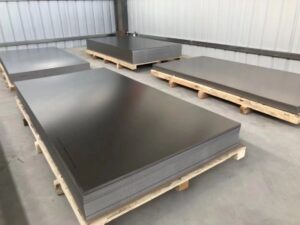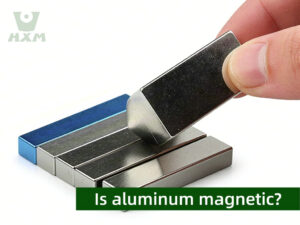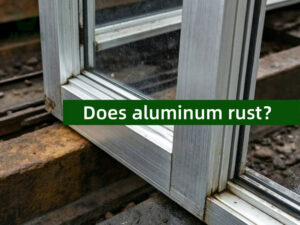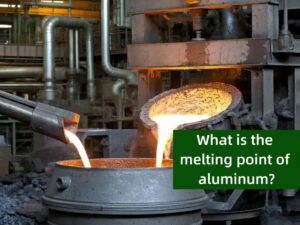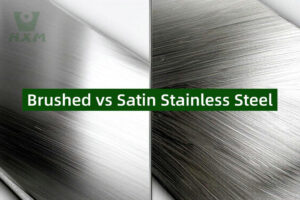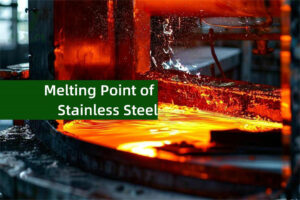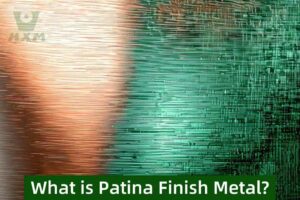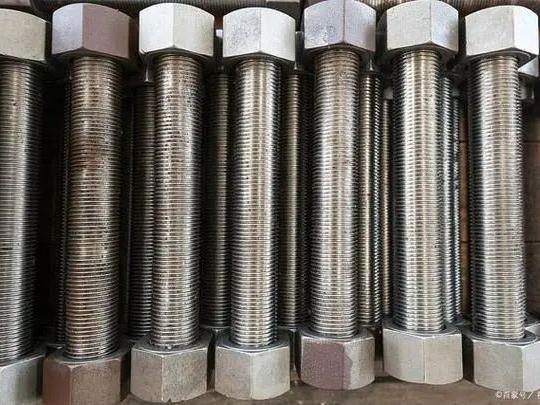
Expanded metal is a versatile material created by cutting and stretching a metal sheet to form a diamond-shaped mesh pattern. This process enhances the structural integrity of the material, offering a variety of applications across industries. From structural loading to ornamental uses, expanded metal comes in many types, each tailored for specific needs.
Huaxiao Alloy is one of the professional expanded metal suppliers, providing high-quality products for diverse applications. With our expertise, we deliver tailored solutions to meet your exact specifications.
What is Expanded Metal?
Expanded metal is formed by mechanically cutting and stretching a metal sheet, resulting in a pattern of interconnected meshes. This process does not involve welding or waste, making it both economical and environmentally friendly.
Key Properties:
- Strength-to-Weight Ratio: Expanded metal retains the strength of the base material while being lightweight.
- Versatility: Available in various sizes, thicknesses, and materials such as steel, stainless steel, and aluminum.
- Durability: Resistant to wear and tear, with options for corrosion resistance like galvanized or stainless steel finishes.
Common Materials:
- Steel Expanded Metal: High strength and cost-effective.
- Stainless Steel Expanded Metal: Corrosion-resistant and aesthetically appealing.
- Aluminum Expanded Metal: Lightweight and non-corrosive.
At Huaxiao Alloy, we offer expanded metal solutions with outstanding durability and precise sizing, ensuring reliability for your projects.
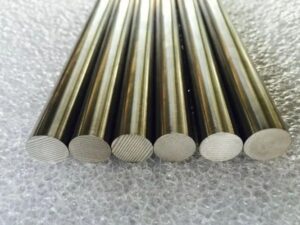
4J36 is a special low-expansion iron-nickel alloy with an ultra-low coefficient of expansion. The control of carbon and manganese composition is very important in it. Cold deformation reduces the coefficient of thermal expansion and heat treatment in a specific temperature range stabilizes the coefficient of thermal expansion. In dry air at room temperature 4J36 is corrosion resistant. In other harsh environments, such as humid air, corrosion (rust) may occur.
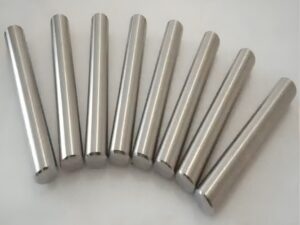
4J29 alloy, also known as Kovar alloy, has a linear expansion coefficient similar to that of borosilicate glass within the range of 20–450°C. It has a high Curie point and excellent low-temperature structural stability. The alloy forms a dense oxide layer, which allows for effective glass wetting and is resistant to mercury, making it suitable for use in mercury-containing discharge instruments. 4J29 is the primary sealing material used in the structural components of electric vacuum devices.
Types of Expanded Metal
Expanded metal is categorized based on its pattern, size, and intended use. Here are the main types:
1. Standard Expanded Metal
Also known as raised expanded metal, it has a textured surface and is ideal for applications requiring friction.
- Applications: Walkways, platforms, fencing, and grating.
- Benefits: High grip and lightweight structure.
2. Flattened Expanded Metal
Created by passing standard expanded metal through a flattening machine, resulting in a smoother surface.
- Applications: Architectural cladding, screens, and enclosures.
- Benefits: Easy to handle and aesthetically appealing.
3. Expanded Metal Mesh
A general term encompassing both raised and flattened types, used for decorative and structural purposes.
- Variants: Stainless steel diamond mesh, expanded steel mesh.
- Applications: Security grills, fencing, and ornamental features.
4. Expanded Metal Grating
A heavy-duty variant designed for high structural loads.
- Applications: Flooring, industrial platforms, and stair treads.
- Benefits: Excellent load-bearing capacity and durability.
5. Decorative Expanded Metal
Includes ornamental expanded metal, designed for visual appeal while maintaining structural integrity.
- Applications: Interior design, facades, and decorative panels.
- Benefits: Customizable patterns and enhanced aesthetics.
Huaxiao Alloy specializes in ornamental expanded metal, adding both functionality and elegance to your projects.
Measuring and Sizing Expanded Metal
Understanding how to measure and size expanded metal is crucial for selecting the right type for your application.
Key Dimensions:
- SWD (Short Way of Diamond): The shortest distance between two sides of a diamond opening.
- LWD (Long Way of Diamond): The longest distance between two sides of a diamond opening.
- Strand Width: The width of the metal left between the cuts.
- Thickness: The thickness of the base material before expansion.
How to Measure Expanded Metal:
- Measure the SWD and LWD of the openings to determine the mesh size.
- Consider the thickness and strand width for load-bearing applications like expanded metal flooring or structural uses.
Huaxiao Alloy offers expanded metal with precise sizing and dimensions, ensuring optimal performance for every application.
Applications of Expanded Metal
The adaptability of expanded metal makes it suitable for a wide range of applications:
1. Structural Applications
- Expanded Metal Sheet Structural Loading: Used in platforms, walkways, and catwalks due to its high strength-to-weight ratio.
- Expanded Metal Floor and Grating: Ideal for industrial environments requiring durable and anti-slip surfaces.
2. Ornamental and Architectural Uses
- Decorative Panels: Adds a modern aesthetic to building facades and interiors.
- Stainless Steel Diamond Mesh: Popular in fencing and security applications for its sleek appearance and strength.
3. Industrial and Safety Uses
- Expanded Steel Mesh: Used in machinery guards and barriers to ensure safety.
- Expanded Metal Grating: Supports heavy loads in industrial and warehouse environments.
4. Custom Applications
- Expanded Metal Mesh Sizes: Available in customized sizes for unique projects, such as artistic installations or precision equipment.
Advantages of Expanded Metal
- Strength and Durability: Handles significant loads while resisting wear and tear.
- Cost-Efficiency: Minimal waste during manufacturing reduces costs.
- Versatility: Wide range of sizes, materials, and patterns for different applications.
- Eco-Friendly: No scrap generated during production.
With Huaxiao Alloy’s expertise, we ensure every piece of expanded metal meets your requirements, combining durability and cost-effectiveness.
Conclusion
Expanded metal is a remarkable material that combines strength, versatility, and durability. Whether you need a solution for structural loading, decorative applications, or industrial safety, expanded metal offers a type tailored to your requirements.
Huaxiao Alloy is one of the leading suppliers of expanded metal, delivering high-quality products for industries worldwide. Contact us today to find the perfect expanded metal solution for your needs!
Why Choose Huaxiao Alloy?
Huaxiao Alloy is a reliable supplier of high-quality expansion alloys like 4J36 (Invar 36), 4J29 (Kovar), and 4J32. We offer premium materials that meet international standards, customized solutions, and competitive pricing to support your precision manufacturing needs. With a global supply chain and expert technical support, we ensure timely delivery and seamless integration into your projects. Contact us today for a quote!

4J36 is a special low-expansion iron-nickel alloy with an ultra-low coefficient of expansion. The control of carbon and manganese composition is very important in it. Cold deformation reduces the coefficient of thermal expansion and heat treatment in a specific temperature range stabilizes the coefficient of thermal expansion. In dry air at room temperature 4J36 is corrosion resistant. In other harsh environments, such as humid air, corrosion (rust) may occur.

4J29 alloy, also known as Kovar alloy, has a linear expansion coefficient similar to that of borosilicate glass within the range of 20–450°C. It has a high Curie point and excellent low-temperature structural stability. The alloy forms a dense oxide layer, which allows for effective glass wetting and is resistant to mercury, making it suitable for use in mercury-containing discharge instruments. 4J29 is the primary sealing material used in the structural components of electric vacuum devices.
Expanded metal has a wide range of applications, including:
- Construction: Used for walkways, grates, and fencing.
- Architecture: Decorative facades, partitions, and ceilings.
- Industrial: Machinery guards, filtration systems, and ventilation.
- Automotive: Grilles and reinforcement components.
- Agriculture: Protective enclosures and sifting screens.
Expanded metal is typically manufactured from a variety of materials, including:
- Carbon Steel
- Stainless Steel
- Aluminum
- Copper
- Brass
- Titanium The choice of material depends on the application, with considerations for strength, corrosion resistance, and aesthetic appeal.
When specifying expanded metal, you need to include:
- Material Type: Carbon steel, stainless steel, etc.
- Thickness: Gauge or millimeters.
- Pattern Type: Diamond, square, or decorative.
- Mesh Size: The size of the openings (e.g., 1/2″ x 1″).
- Strand Width: The width of the metal between openings.
- Overall Dimensions: Length and width of the sheet.
- Finish: Galvanized, powder-coated, or untreated.
The size of expanded metal is determined by:
- Mesh Size: The distance between the centers of two adjacent openings (measured as long way of diamond (LWD) and short way of diamond (SWD)).
- Strand Width: The width of the metal between openings.
- Thickness: The overall gauge or thickness of the sheet.
Metal can be expanded using the following steps:
- Slitting: The metal sheet is fed into a machine where small cuts are made in a specific pattern.
- Stretching: The sheet is then pulled to expand the slits into the desired mesh shape.
- Finishing: The expanded metal may undergo additional processing, such as flattening, annealing, or coating (galvanizing or painting).
Expanded Metal: Properties, Types, and Applications
Call Us Now!!!

